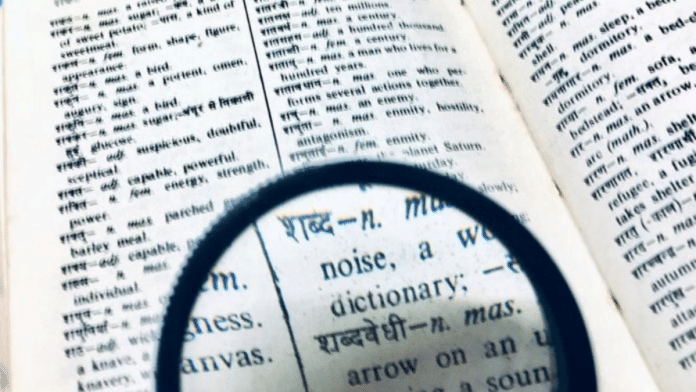New Delhi: Overseeing live speech-to-speech translation of English lectures into 11 Indian languages, introducing full-fledged Hindi classes for first-year students, and testing professional courses in regional languages before expanding them to regular engineering programmes—the premier Indian Institutes of Technology (IITs) are making bold moves to break language barriers and promote inclusive growth through regional language education.
At the 56th IIT Council meeting held in August, Union Education Minister Dharmendra Pradhan had urged premier engineering institutes to promote Indian languages by introducing regional languages alongside English. This recommendation also aligns with the vision of the National Education Policy (NEP) 2020, which encourages the use of Indian languages as mediums of instruction to strengthen conceptual understanding.
Soon after the council meeting, IIT Madras took a pioneering step by developing a live speech-to-speech translation tool and piloting it last month, institute director V.Kamakoti told ThePrint.
Highlighting the persistent challenge of language barriers, especially given India’s vast linguistic diversity with over 20 official languages, Kamakoti said that students often start their schooling in their mother tongue before transitioning to English.
“Many students find it difficult to express themselves among peers, leading to complexes that further hinder their progress. Recognising these challenges, IIT Madras has taken a pioneering step by developing a live speech-to-speech translation tool,” he said.
This tool can convert English lectures into 11 Indian languages—including Tamil, Hindi, Telugu, Kannada, Malayalam, and others—“almost live,” preserving the natural tone, emphasis, and expressions essential for effective learning. The institute, in collaboration with the startup Sarvam AI, which was also developed on campus, has worked on creating an AI-powered translation tool for classroom lectures.”
It is very important that the same tone and emphasis come across in the translated speech so that students receive an authentic experience rather than a literal, robotic translation, Kamakoti points out.
“The initiative primarily targets first-year engineering students, particularly during their first two semesters when the need for language support is greatest. IIT Madras plans to comprehensively translate all first-year lecture content into multiple languages, making it accessible to students through platforms like YouTube and online drives,” he said.
“The project has already successfully completed its experimental phase and is now preparing for full-scale implementation starting the next academic year. The institute has already demonstrated the tool to Union Education Minister Dharmendra Pradhan during his recent visit to the campus.”
Also Read: NITI Aayog says lack of English proficiency key barrier to state university graduates getting jobs
Experimenting with courses
IIT Kharagpur, meanwhile, plans to introduce professional courses in Bengali before transitioning to regular BTech programmes.
According to institute director professor Suman Chakraborty, the institute is developing new courses with a lot of video components including recorded and live sessions, combined with some physical presence. These programmes will be offered online or in hybrid mode and are distinct from the traditional mainstream courses.
“They are not part of the mainstream of our regular courses, but are professionally oriented, catering to specific industry needs, such as data science and AI,” he told ThePrint.
The design follows a multiple entry multiple exit frame, allowing learners to either complete a full four-year Bachelor of Science degree or opt for shorter certifications or diplomas depending on their career stage.
“For example, someone who is a middle aged professional, but wants to upgrade their skills…a certificate course may be fine, whereas a medical doctor may pursue a one-year of study diploma focused on applied AI relevant to their field,” he said.
Chakraborty emphasised the importance of cultural and language sensitivity: “If we are using this kind of platform for lifelong learning, we have to be positively sensitive to their acceptability of the culture of delivery, of course and language of delivery.”
Currently, IIT Kharagpur plans to pilot these flexible courses before integrating them into traditional degree programmes, as the latter’s rigid structure limits adaptability.
“We want to make sure we are very successful pilots on those kinds of courses where we can be a bit more flexible and do some experimentation on the content delivery,” he said.
Instructions in Hindi
Last year, IIT Jodhpur became the first among 23 IITs to introduce parallel BTech sections with Hindi as a medium of instruction, aiming to bridge the “invisible divide” where language proficiency can overshadow intellectual potential.
According to IIT Jodhpur director professor Avinash K. Agarwal, the primary goal was to support students from Hindi-medium schools by easing their transition into the highly competitive IIT environment.
“Given that Hindi is the predominant mother tongue for many students, we launched parallel English and Hindi sections for first-year BTech courses. The same faculty teach both sections, and all elements—including syllabus, assessments, labs, projects, and exams—are identical. Technical terms remain in English, bilingual materials are provided where possible, and students can switch between sections or choose their exam language freely,” Agarwal told ThePrint.
The response has been overwhelmingly positive, with about 116 students opting for the Hindi section in the first year. The teachers, he said, have noted increased interaction and enthusiasm, while students reported greater confidence and better conceptual understanding.
“Semester results showed comparable performance across both sections, with Hindi-medium students well represented among the top grades. More than half of the students felt comfortable switching to the English section by semester’s end,” he said.
To further support this transition, all first-year students undergo a separate communication skills course to improve their English proficiency. With this foundation, students confidently continue their studies in English from the second year onwards, ensuring their global competitiveness.
Meanwhile, there is no plan to start sections in other languages as of now. “Keeping feasibility, requirements, and logistics in mind, we plan to continue with our two-language model given that ensuring the same high quality of instruction for all our students is our utmost priority,” the IIT Jodhpur director said.
(Edited by Tony Rai)






